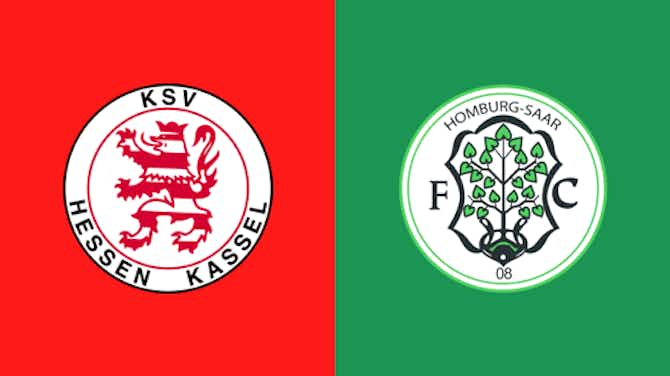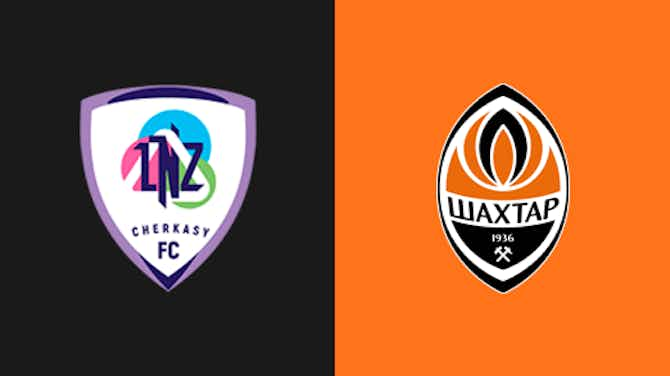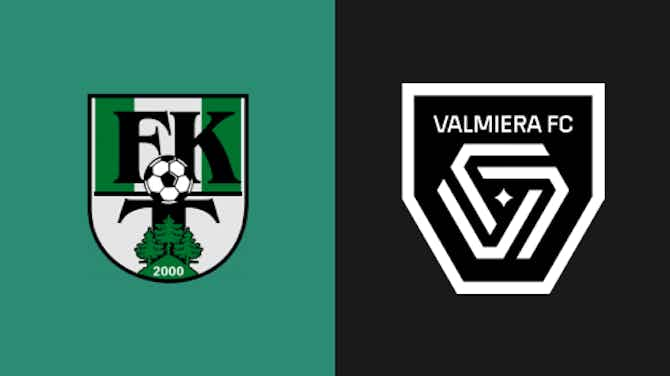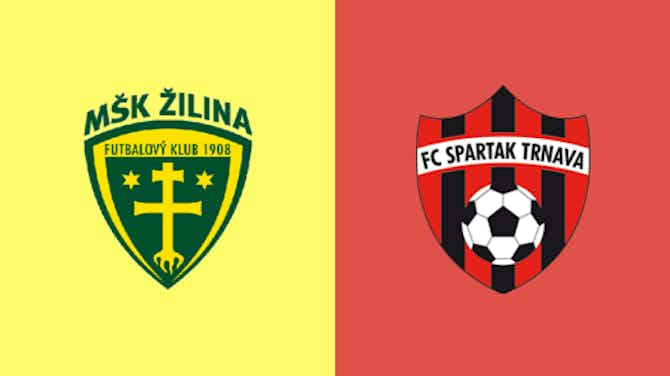OneFootball
Lewis Ambrose·26 November 2020
EXCLUSIVE: Chloe Morgan on WSL, equality, goalkeeping and more
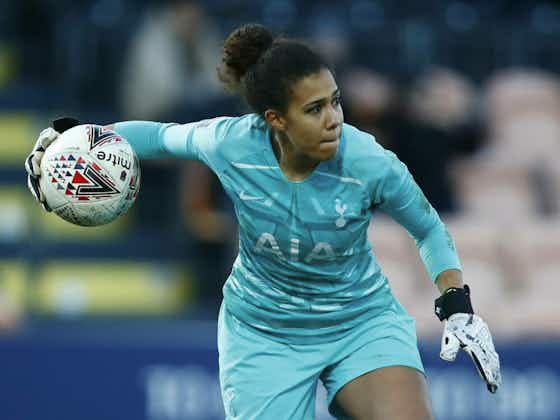
OneFootball
Lewis Ambrose·26 November 2020

A lawyer, a Women in Football board member, a goalkeeper for Crystal Palace, Chloe Morgan has her hands full off the pitch and on it.
Juggling all that would have most people out on their feet but Morgan still has time to sit down at the end of the day to sit down with OneFootball and have a long chat about her career, her passions, and her hopes for women’s football.
“I think and I hope, in the UK, ours will become the best women’s league in the world,” she says when asked what she wants for women’s football in England in the next five years. “I think we’ll have that and establish that.
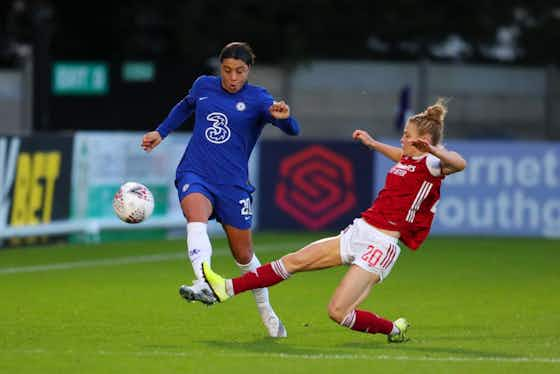
“I want to see competition from other countries, attracting that talent. And I’d love to see a lot of focus on attracting and training the talent we have in the UK. That’s key in encouraging young girls in this country to get more involved in football, if we see more homegrown talent getting to the Championship, to the WSL, maybe even to other countries and progressing their career there.
“For that to happen there needs to be an understanding that you need pathways in place for younger players especially to be supported financially, emotionally, and there needs to be an understanding that your career in football is very limited.
“You might only play until you’re 28, 29, 30, and after that you have a long time. You need to support players in career development pathways after that.”
Support is a theme that crops up over and over again when talking about women’s football. The game has come a long way in England in recent years, from an era when Morgan grew up relatively unaware of top flight women’s football and had no access to the England national team to the current era of sponsorships, a fully professional WSL, and games on TV every week. But there is still much progress to be made.
“I don’t think there should be a situation where you have to prove your worth before you can have the right investment, or equal access to shared facilities, it just doesn’t make sense,” she says.
“If you give that access and put that investment in, training will be better, the women and girls will feel more respected and included in the club. In any other sphere it would be ridiculous to say: ‘We’re only going to give you equality if you perform better.’ Equality should be given as standard, the default position.
“Budgets are going to be tighter this year, cuts are going to be mad, there are job losses going on. I’m absolutely not sitting here and saying millions and billions of pounds should be going into women’s football right now but the basic things, like access to facilities, need to be massively improved.”
Many clubs, even at the very top of the game, don’t consider their women’s teams even when a financial burden would be negligible.
Liverpool left their Melwood training ground last week to move into a brand new £50m complex equipped with beach volleyball courts but with no pitches or training facilities for the women’s team.
That move came in the week that girls’ academies at top clubs were forced to close – due to a lockdown in the UK which put a stop to all non-elite sporting activity while testing has been made available to boys’ academies at the same clubs so they can continue while adhering to the guidelines in place.
“You’ve still got a situation where these clubs are paying £100,000s to one person per week but a girls academy can’t continue because they have a budget of £80,000 for the year. I can’t understand that. It’s a ridiculous message to send out to the girls that boys of the same age will be allowed to continue but you can’t.
“It’s a pre-historic situation that we’ve been left in, so step up! That’s my message.”
And it’s a strong one, especially coming from a woman who had such an unusual path into the game. Morgan is now a goalkeeper for Crystal Palace FC Women but didn’t don the gloves until she was in her 20s.
“I was playing for Leyton Ladies, a Sunday League team my dad manages, and the goalkeeper we had at the time dislocated her knee, I said, ‘I’ll go in goal and finish the rest of the game’, and I absolutely loved it,” she says.
“Our goalkeeper was then out with the injury for the rest of the season so I decided to stay put. Since then it’s been something I’ve enjoyed doing and not been too bad at!”
Even if the position isn’t exactly one that is heralded, especially in the women’s game.
“I don’t think anyone holds back about criticising a goalie,” Morgan laughs.

“You know that about the position but it can be frustrating to have a game where you might have played 99% pretty much perfectly but you make one wrong pass or movement and all of a sudden you’re the villain.
“I want to encourage as many people as possible to be involved in goalkeeping but it comes with that caveat: be prepared, because it’s probably the most high pressure position on the field. There’s so much you’ve got to be good at now, not just pulling off saves but with your feet, distribution is a key thing now that goalkeepers are being utilised for, there’s communication, stopping crosses. There’s a lot on your shoulders!”
But the women’s goalkeeping scene is getting better, and quickly.
“Goalkeeper coaching hasn’t been at the forefront and it’s had limited funding and investment in the women’s game.
“But the position is massively improving, we’ve got dedicated goalkeeping coaches, dedicated training sessions, and you can start to see the standard improve but people need to understand it before criticising. I want people to have that understanding that it’s only very recently that goalkeepers have been given that focus in the women’s game, so the position is still playing catch up.”
Just a few weeks ago the FA Cup Final was dominated by fantastic performances from Everton’s Sandy MacIver, who won Player of the Match, and Manchester City’s Ellie Roebuck. Games like that, on the big stage, will only help dispel the idea that women’s goalkeepers often just aren’t good enough.

“It’s a confidence booster for the women’s goalkeeping community in the UK when you have two displays from fantastic keepers who are pulling out worldie saves. It flies in the face of all the criticism we get. The standard is vastly improved from where it was two, three, four years ago.”
And that’s not just true of goalkeeping.
Morgan was part of a Tottenham team that won promotion to WSL 2 (now the Women’s Championship) in 2017 and then promotion to the WSL in 2019, all while continuing her law career.
When Spurs reached the WSL, the goalkeeper took a one-year sabbatical to sign a professional contract and focus fully on football. But she’s now back in the Championship with Crystal Palace getting the gametime she wants and says the club “want to progress up the table and look at the WSL in the next few years.”
Having returned to the league after just one year away, Morgan is sure the level is improving and doing so quickly.
“We’re starting to see a lot of Championship clubs fighting and battling for promotion into WSL, because the setup is just a limited number of teams – there’s a lot less teams than in the (men’s) Premier League – and only one promotion place to go into the WSL every year, there’s a drive for that spot,” she explains.
“You’ve got teams who are very well supported now by their male counterparts so a lot of the Championship teams are becoming full-time professionals outfits. The difficult thing about the Championship now is you have a mixture of part-time teams with teams who are very serious, full-time professional setups.
“But it’s good, the more competitive it is the greater the standard is going to be, you’re going to attract more talent and that’s only going to filter through into the WSL as well.”
Returning to the Championship meant playing regularly again after a frustrating year spent largely on the bench with Spurs but it also meant a return to the day job as a lawyer.
Unlike the men’s game, even the very best women’s footballers in England played semi-professionally until recent years and many in the Championship still do. The challenge of holding down a full-time job and still playing football at such a high level shouldn’t be underestimated.
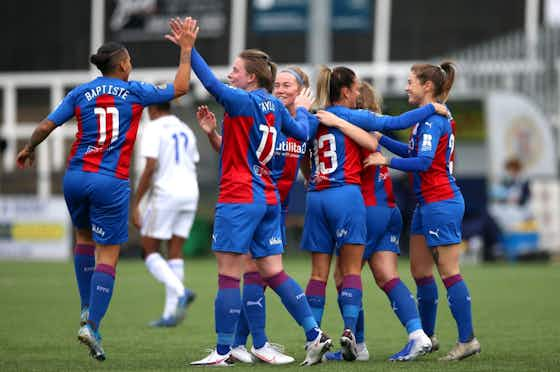
“It can be exhausting,” Morgan admits. “Especially when you have big games on a Sunday, you have away games when you’re away Saturday and Sunday, then the next day you’re back doing a full day’s work and by the end of Monday you’re shattered.
“We have home recovery sessions on an app and gym sessions, when the gyms are open, that we have to do. It’s a constant mental and physical battle to stay motivated because sometimes your body just wants to rest! You just want to crawl under the duvet and pass out for a week.
“That’s the difficulty for the Championship teams playing part-time, you’ll never have as many sessions and you won’t have that recovery time or the hours in the gym or the hours of analysis, so you’ll always be at a disadvantage.”
The only way to overcome such a disadvantage is with investment.
Chelsea, Arsenal and Manchester City have come to dominate the WSL but Everton and Manchester United are challenging that tradition this season after putting more and more into their women’s sides.
The WSL doesn’t have to dive into the hegemony of the men’s game, where the same select clubs compete for honours, both domestic and continentally, season after season.
“Manchester United are a great example of what can happen if you have the right investment,” Morgan explains as she revisits the topic of the lack of investment that is holding the game back.
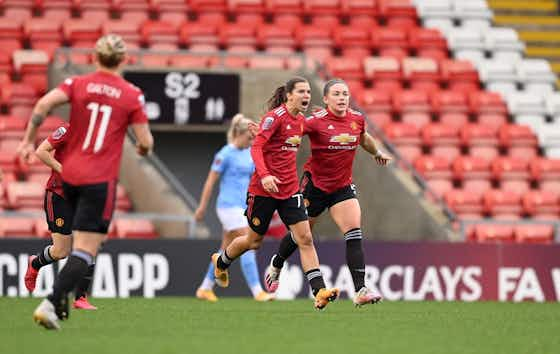
“The women’s club didn’t exist three years ago, all of a sudden they’re at the top of the WSL. From nowhere to the top of the WSL in three years!
“Casey Stoney’s a fantastic manager but you need that backing and she’s been able to bring in some fantastic players to get the team up there.
“It’s difficult for female players sometimes to speak about what goes on behind the scenes but in terms of access and sharing resources, that can improve and it should improve. Being able to share the facilities, the training ground where you have 20 pitches and the women’s team are training at a different place.
“That doesn’t make any sense and it feels non-inclusive and segregational in some circumstances.
“The FA decision about the girls academies being stopped and the boys being allowed to continue, that’s a prime example of what’s happening in terms of resources.”
And it’s Morgan’s passion on topics like this that have led her to do so much beyond her work as a lawyer and a goalkeeper.
Since September, the 30-year-old has also been on the board of Women in Football, an organisation that looks to open avenues for women all over the football industry.
“It’s got 4,000 or so members involved from across the world now. We promote women’s football, leagues, the industry, leadership courses, and provide networking for women in the football industry,” Morgan explains.
“Whether it’s players, coaches, women in the business of football, we bring them together. Now we’re looking at assisting corporations with working with women in the game, with boards, and looking to get a a council for younger members who are in the more junior stages of their careers.”
Her passion to spark the younger generations’ interest in the game shines through as she talks about her first steps into coaching, a career avenue she’s now considering when she hangs up her gloves.
“Coaching is one of those things I sort of fell into when I had spare time at Spurs,” Morgan says.
“The aim was to try and get more girls and women involved in goalkeeping because I don’t think there’s a big drive or push for that position in particular, so I ended up doing a few sessions with local teams and working with Goaldiggers as well and loving it.
“It’s become a big highlight of my week, I put together sessions and I can see the development of my little goalkeeper union. They’re picking things up, they’re getting better, and that’s something I’m now looking at as a potential career or something on the side going forwards because it brings me so much joy.”
But while there is so much focus on what women’s football needs more of, Morgan is also keen to keep what makes the game special, things it doesn’t share with the men’s game.
The culture of inclusivity in women’s football is astonishingly far ahead of the men’s game and it’s becoming increasingly important to preserve that as WSL and Women’s Championship matches attract bigger crowds.
“The dynamic of the fans we have has helped, looking at the people we have coming to games, you have families, young girls, girls football clubs,” Morgan says.

“I always saw a very family-orientated atmosphere, there wasn’t much fan abuse. Towards the end of playing in WSL I was starting to see facets of men’s supporters coming to women’s games and they were supporters I wouldn’t necessarily want to encourage to come to the games because of the offensive things that are then said, the bad language. That’s something that needs to be stamped out of the women’s game quite quickly before it starts to become a similar situation to the men’s game.”
The women’s game growing organically and out of the traditional limelight has helped breed an inclusive culture, one where BAME voices have that bit more exposure and LGBTQ+ representation is high.
“Where the women’s game hasn’t had the coverage that the men’s game has had, it’s been able to grow organically and be inclusive and diverse,” Morgan explains to us.
“In the men’s game, where there’s so many fans, and historically a culture of racism, which is still an issue now but used to be more dominant. The women’s game has always been known for its inclusivity, especially in the LGBTQ+ community, there are a lot of players involved and women in the industry in general who are from the community and it’s just been naturally accepted that that’s the case and that is just wonderful.
“In the male football sphere, we don’t have an openly gay player in the Premier League yet.
“And there’s a lot of pressure for someone to come out and be that first person, I don’t agree with that. It has to be something anyone in that community does for themselves and they shouldn’t feel pressure to be the martyr for the rest of the community, it should be something they do when and if they want to.
“That’s one of the great things about the women’s game, it’s been allowed to be inclusive and diverse and nobody has stopped that or tried to create a different atmosphere.”
But that doesn’t mean there isn’t still a lot of progress to be made, in the women’s game as well as the men’s. There are still almost no BAME coaches in the game, with Brighton manager Hope Powell, who managed England from 1998 to 2013, still the only Black coach in the top flight, as she was last season.
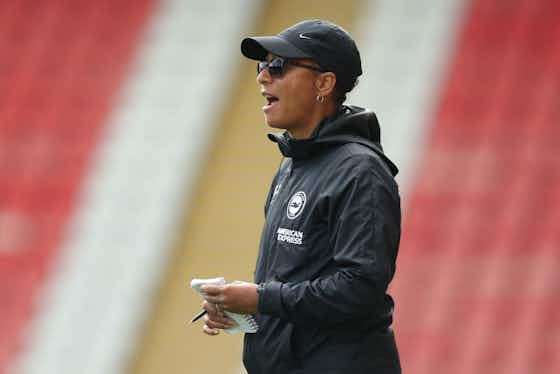
In the men’s game, particularly when looking at fans on social media, there appears to be pressure on members of BAME communities to prove themselves as worthy contenders for roles, something Morgan agrees is absurd.
“Until you start to see more Black coaches, Asian coaches, more of the BAME communities in other roles as well: on boards, as physios, the people who are first to those roles will always have pressure to be the best and prove to everyone, just because they’re attached to this community, that all of the community are just as good,” she says.
“It just doesn’t make sense but that’s where a lot of people’s thinking goes.
“I think we’re a way off that changing but I’m hoping the coaching pathway now, that the FA are trying to bring through, and the focus this summer on the Black Lives Matter movement, I’m starting to see organisations take a bit more of a stand and more equality up their agendas but the proof is in the pudding.”
So what can, and should, we be doing to help?
“Taking a hardline stance on calling out homophobia, racism, sexism,” Morgan answers when we ask her what everyone, including the media, and us at OneFootball can do to help make football more welcoming environment for everyone.
“For me that’s where the change starts to happen and it starts to change people’s opinions on what’s appropriate and what isn’t.”






























